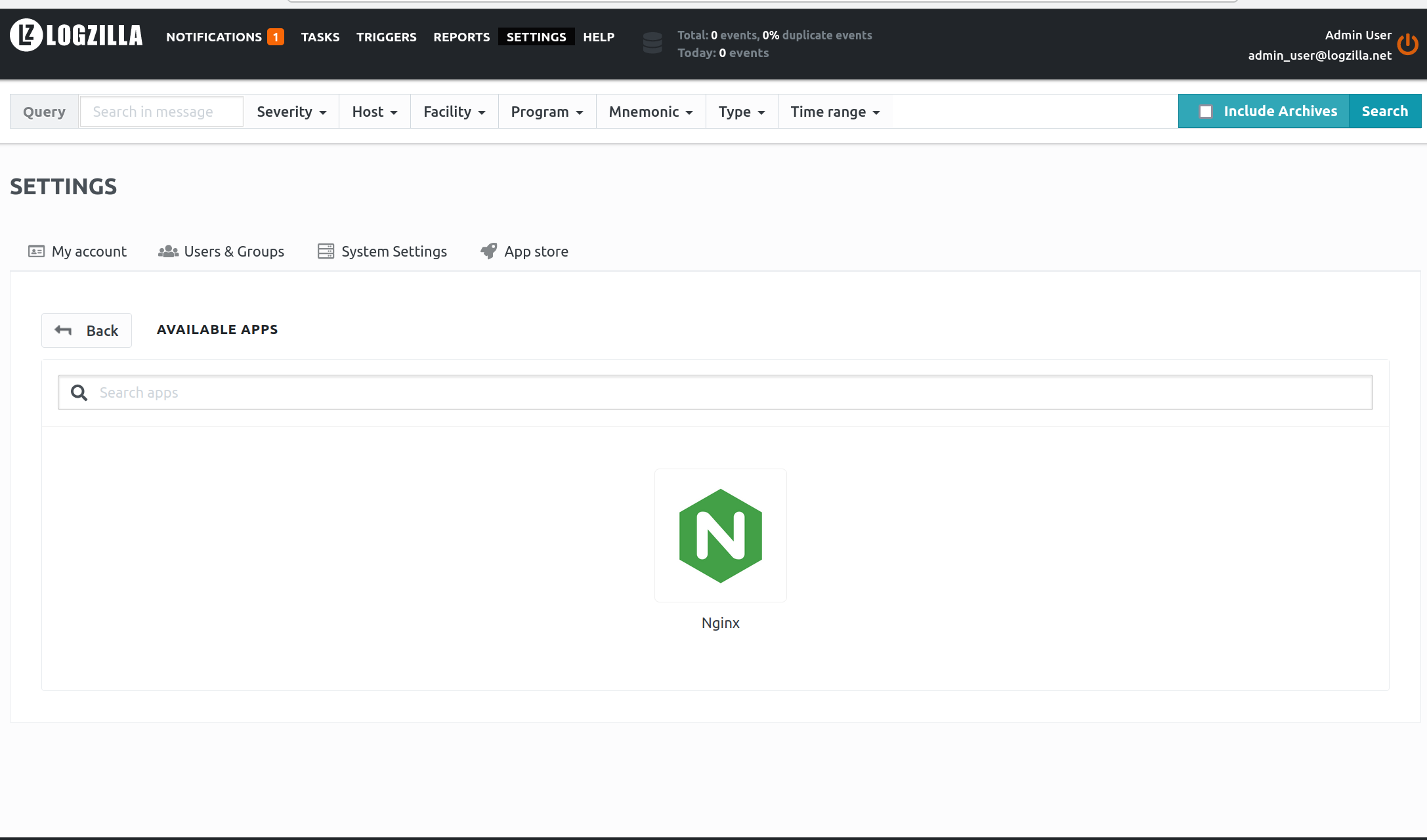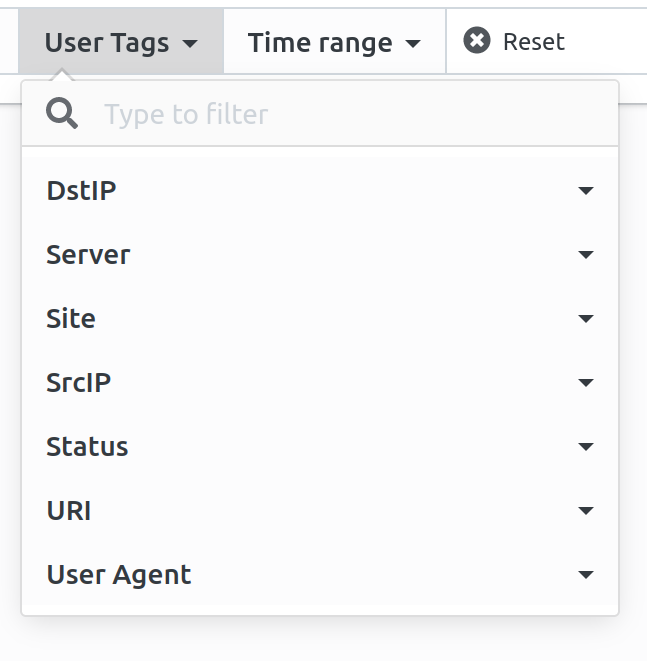Nginx
LogZilla documentation for Nginx
NGINX Version
Requires NGINX
v1.7.1+(open source) orv1.5.3+(commercial) for syslog logging.
Prerequisites
- Confirm syslog listener ports in LogZilla (see Syslog Settings).
- Ensure the NGINX host can reach LogZilla on the chosen syslog port.
Configure logging
-
Verify the include is present under the
http {block in/etc/nginx/nginx.conf:nginxinclude /etc/nginx/conf.d/*.conf; -
Create
/etc/nginx/conf.d/logging.confwith a key=value log format and syslog destinations. ReplaceLOGZILLA_HOSTwith the server hostname/IP.conf# LogZilla custom log format (key=value pairs) log_format logzilla \ 'Site="$server_name" Server="$host" DstPort="$server_port" ' \ 'DstIP="$server_addr" Src="$remote_addr" SrcIP="$realip_remote_addr" ' \ 'User="$remote_user" Time_Local="$time_local" Protocol="$server_protocol" ' \ 'Status="$status" Bytes_Out="$bytes_sent" ' \ 'Bytes_In="$upstream_bytes_received" HTTP_Referrer="$http_referer" ' \ 'User_Agent="$http_user_agent" Nginx_Version="$nginx_version" ' \ 'HTTP_X_Forwarded_For="$http_x_forwarded_for" ' \ 'HTTP_X_Header="$http_x_header" URI_Query="$query_string" URI="$uri" ' \ 'HTTP_Method="$request_method" Response_Time="$upstream_response_time" ' \ 'Cookie="$http_cookie" Request_Time="$request_time" '; # Send logs to LogZilla (syslog over UDP) access_log syslog:server=LOGZILLA_HOST:514,facility=local0,severity=info,tag=nginx_access logzilla; error_log syslog:server=LOGZILLA_HOST:514,facility=local0,severity=notice,tag=nginx_error notice;
NGINX writes in key=value pairs with the log_format above. LogZilla extracts
these pairs automatically for tagging and rewrites (see Data
Transforms). Alternatively, a JSON
log_format can be used; LogZilla extracts fields from both key=value and JSON
bodies.
Reload and verify
-
Test and reload NGINX:
bashsudo nginx -t sudo systemctl reload nginx -
In LogZilla, search for the configured tags/programs to confirm reception:
program:"nginx_access"orprogram:"nginx_error"- Specific key=value fields (for example,
Status:"200")
-
For packet‑level checks, use Syslog Troubleshooting. For encrypted or WAN paths, consider sending to a local relay and forwarding securely to LogZilla. See Syslog Relays.
Next, the nginx LogZilla rule must be installed. This rule is available from
the LogZilla appstore. The rule is installed by going to Settings -> App store in the LogZilla UI.
Add the Nginx app to enable the rule.

Your LogZilla server should now have entries similar to the following:
textSite="localhost" Server="192.168.250.112” DstPort="80" DstIP="192.168.250.112" Src="192.168.250.2" SrcIP="192.168.250.2" User="-" Time_Local="17/Nov/2021:17:45:07 +0000" Protocol="HTTP/1.1" Status="304" Bytes_Out="189" Bytes_In="-" HTTP_Referrer="-" User_Agent="Mozilla/5.0 (X11; Ubuntu; Linux x86_64; rv:94.0) Gecko/20100101 Firefox/94.0" Nginx_Version="1.18.0" HTTP_X_Forwarded_For="-" HTTP_X_Header="-" URI_Query="-" URI="/main.html" HTTP_Method="GET" Response_Time="-" Cookie="-" Request_Time="0.000"
If logs are not being sent or received, check the nginx log. For LogZilla-side troubleshooting steps, see Syslog Troubleshooting.
NGINX Dashboard Widgets
Widgets will now contain tags similar to:
